Disclosure: We may earn commissions if you purchase products after clicking on a link from our site.
Do you want to plan a fishing trip? Planning a fishing trip can be stressful and challenging but it can be done with attention to detail. How to plan a fishing trip is also not difficult as it seems.
And the result is a fun and memorable fishing trip if you do a good job of planning it. In this article, we discuss how to plan a fishing trip to help make it easier when you decide to take that trip you always relish.
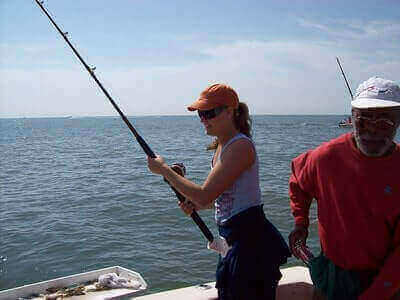
How to Plan a Fishing Trip
- Choose the Fishing Location
One of the first things to decide when planning a fishing trip is where you want to go for the fishing trip. The choice may be determined by the kind of fish you and your family or friends want to catch. Other factors like the weather and distance could also influence where you go for the trip.
When fishing, the location is one of the most important factors and you want to get it right. Spend some time researching the area and verify it has the species of fish you want to catch. Monitor the weather over a period of time and when you want to go on the trip to make sure you will have favorable weather.
Additionally, you want to find out if there are good lodging areas close by the area you want to fish. Get an idea of the fishing culture in that area and how busy it is regularly
2. DIY or Hiring a Fishing Guide
When planning a fishing trip, another important decision you will have to make is whether you want to go fishing solo with your family or friends or whether will you hire a fishing guide. Usually, the smart move is to go with a fishing guide if you are going to an area that you don’t live in and haven’t fished there before.
Here’s the bottom line: a fishing guide is an expert in that area and knows where the fish reside in the waters. Which bait is the best to catch the fish, and the best time of the day to go fishing? Additionally, the fishing guide knows the best fishing gear to use and the baits and lures that will increase your chances of catching fish.
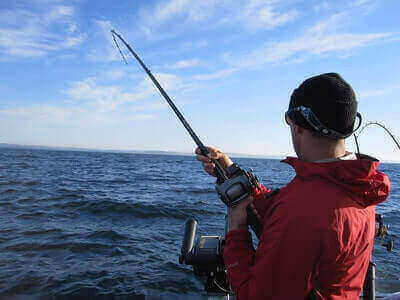
3. Get the Right Gear
If you are going on a charter service that has fishing guides, then you don’t need a lot of fishing gear to take along. They will supply you with fishing rods, reels, and baits. You pay for that and their expertise. However, you will need to carry other fishing gear to make the trip more comfortable like sunglasses, fishing hats, sunscreen, water, snacks, cameras, etc.
However, if you are going “solo” and not on a fishing charter, then you will need fishing rods, reels, bait, lures, and all the regular fishing gear you use regularly on your fishing trips. Hooks, lines, rods, reels, first aid kits, fishing kits, sunglasses, hats, water, snacks, coolers for the fish, and other items for fishing.
4. Do Your Homework
If you are not going on a fishing charter, then you will have to do a little bit more research about the area that you will be fishing. Use Google Earth to get a good idea of the fishing area. You can also look for social media sites and forums for fishing groups in that area and spend some time chatting with the members. Let them know of your trip and you might get some good tips that may be very useful regards fishing or lodging.
Additionally, you can also look for local fishing and tackle shops close by the area you want to fish and just call to get some good fishing advice. You can make it easier to get the information from them by stating that you will be in the area to fish and would stop there to get bait and lures, therefore, you would like to know the best bait and lures to purchase for the type of fish you will be trying to catch.
Moreover, you want to find out about the water conditions during the time you plan on fishing. Will it be high or low, cold or warm? This information will give you a good insight into how easy or difficult it will be to fish during the time period you want to go fishing.
You can research this online or talk to the local tackle shops nearby for some of that information. The United State Geological Survey has data on most bodies of water and you can easily find that information from their website.
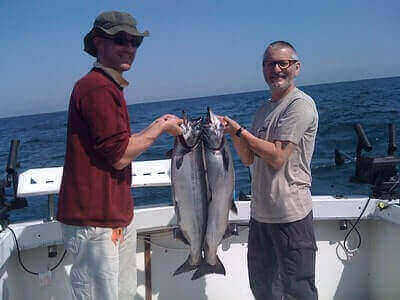
5. Rules & Regulations
If you are not going on a fishing charter, make sure you purchase a fishing license for the area you want to fish and make sure to take it with you. I like to laminate my fishing license to prevent it from getting damaged.
Additionally, research the fishing rules and laws in the area concerning size limits, catch limits, open and closed seasons, catch and release laws, barbless hool laws, and artificial lures. You want a fun and memorable fishing trip with family and friends and don’t want it to be remembered for the wrong reasons.
6. Fishing Charter Etiquette
If you will go on a fishing charter, don’t forget to take cash with you for tipping. The guides make most of their money from tips as the fees you pay for the charter go towards gas and bait. As a matter of courtesy, always take more tips than you think is sufficient if you are going on a fishing charter.
There is a high possibility that you will get good advice and end up catching big fish that a small
the tip will leave you embarrassed and regretting that you didn’t take enough cash with you.
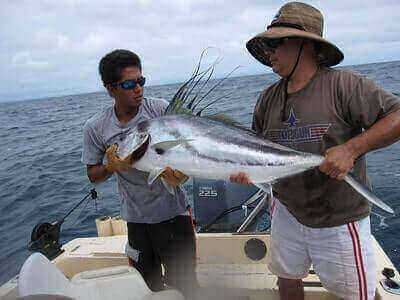
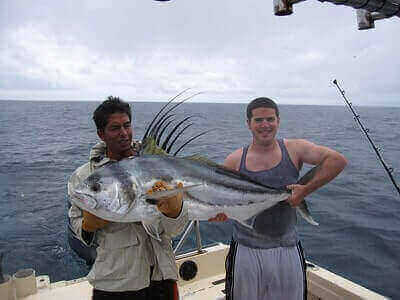
The Bottom Line
A fishing trip is an exciting and fun time that will strengthen the bond with family and friends. It will also create fond memories that you can remember for a lifetime. Planning a fishing trip is not difficult but requires careful attention to detail to ensure you cover all of your bases for a successful trip.
In this article, we discussed how to plan a fishing trip to help you plan well to make your fishing trip a memorable time with family or friends. You can learn about the benefits of fishing from this article.